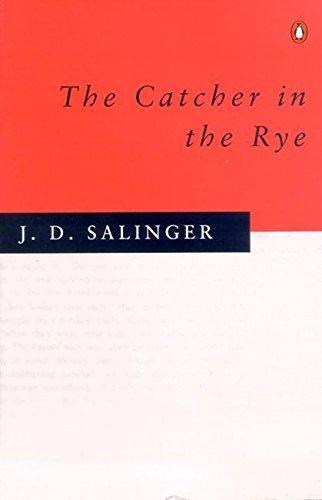Holden Caulfied would be a lone shooter. At best.
2 stars
Last week, I watched a documentary about the elusive author J.D. Salinger. A number of med talked about the reclusive author down to tell them how much they loved his writing, and how much they identified with Holden Caulfield in Catcher In The Rye. One mentioned that when he cornered the author and told him how amazing the book was and how J.D. really SPOKE to him through his writing. The way the interview subject talked, Salinger can upset by this and quite rude.
I thought I'd read Catcher to see what the big deal was, and maybe it wasn't just a book that spoke to lonely alienated boys looking for something to blame. Reading this, however, I feel like I'm paging through the mind of an 8chan incel. Maybe it's not such a big wonder why lone gunmen adore this book.
Holden isn't special, and he's no …
Last week, I watched a documentary about the elusive author J.D. Salinger. A number of med talked about the reclusive author down to tell them how much they loved his writing, and how much they identified with Holden Caulfield in Catcher In The Rye. One mentioned that when he cornered the author and told him how amazing the book was and how J.D. really SPOKE to him through his writing. The way the interview subject talked, Salinger can upset by this and quite rude.
I thought I'd read Catcher to see what the big deal was, and maybe it wasn't just a book that spoke to lonely alienated boys looking for something to blame. Reading this, however, I feel like I'm paging through the mind of an 8chan incel. Maybe it's not such a big wonder why lone gunmen adore this book.
Holden isn't special, and he's no rebel. Rebels DO something, but Holden only whines about things. Everything is someone else's fault. His room mate at school did this or that and caused him to get distracted. People who like something are stupid for liking it. Women are ugly and stupid because they aren't with him.
Holden is a sad little boy who is alienated and self-absorbed. Sure, he's sixteen and a loser, but he's hardly rebelling against anything. He sees only the faults in others and sees only (imagined) good in himself. Even when he sounds a bit self-deprecating, the core of his problems is someone else.
Holden might be a nihilist, but he's no rebel.
If Holden was Salinger inserting himself into the main character, then maybe the author's self seclusion was a service to humanity.
"I don't want to scare you," he said, "but I can very clearly see you dying nobly, one way or another, for some highly unworthy cause." Mr. Antolini from Catcher In The Rye
Okay, maybe J.D. Salinger could see Holden as a lone shooter.




